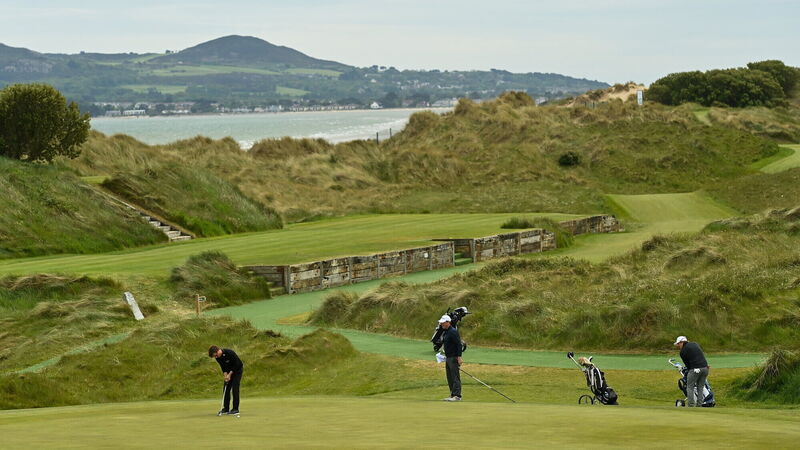Cliona Foley: Portmarnock and Leinster victories a landmark in the battle for equality

Julian Kunzenbacher of Germany putts on the 8th green during the Irish Challenge Golf at Portmarnock Golf Links in Dublin this week. The club at Portmarnock ended their controversial 'men-only' policy in a high-profile decision. Picture: Ramsey Cardy/Sportsfile













